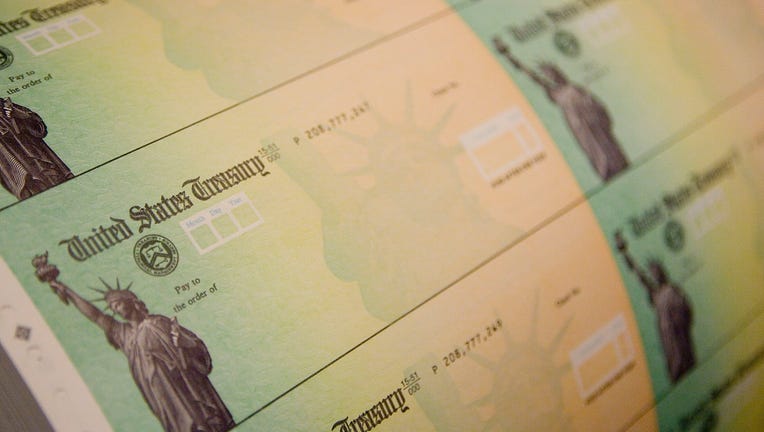Stimulus checks: IRS says next batch of payments will be disbursed in coming days

PHILADELPHIA - MAY 8: Economic stimulus checks are prepared for printing at the Philadelphia Financial Center May 8, 2008 in Philadelphia, Pennsylvania. One hundred and thirty million households are eligible to receive a tax rebate check under the $1
Federal officials said Monday the next batch of COVID-19 stimulus payments will disburse to taxpayers this week.
For those who have direct deposit set up, the latest batch of payments began processing Friday and will have an official pay date of Wednesday, March 24, though some may see the money in their accounts earlier as pending deposits.
Many of the payments in this next round are being issued by paper check or prepaid debit card, the U.S. Department of the Treasury said.
If you don’t receive a direct deposit by March 24, watch the mail carefully.
The Treasury said additional payments are expected to be disbursed on a weekly basis going forward.
No action is needed by most people to get stimulus money. You can check your status on the IRS’s Get My Payment tool.
President Joe Biden’s $1.9 trillion coronavirus relief package was approved earlier this month, triggering the third stimulus payment amid the ongoing pandemic to Americans.
RELATED: Senate approves $1.9T COVID-19 relief bill after all-night session
The first batch of relief payments went to taxpayers who provided direct deposit info for their 2019 or 2020 tax returns.
The stimulus payments include $1,400 checks for individual Americans making $75,000. Couples earning $150,000 or less will receive $2,800. Households will receive an additional $1,400 for each dependent child claimed on their most-recent tax filings.
As with previous rounds, Americans who earn more will still receive a partial check, though the cut-off is stricter with this package.
Individuals making $80,000 a year or more and couples making $160,000 a year or higher no longer qualify for the checks. That means individuals earning between $80,000 and $100,000, and couples earning between $160,000 and $200,000, are newly excluded from a partial check under the legislation.
FOX News contributed to this report

